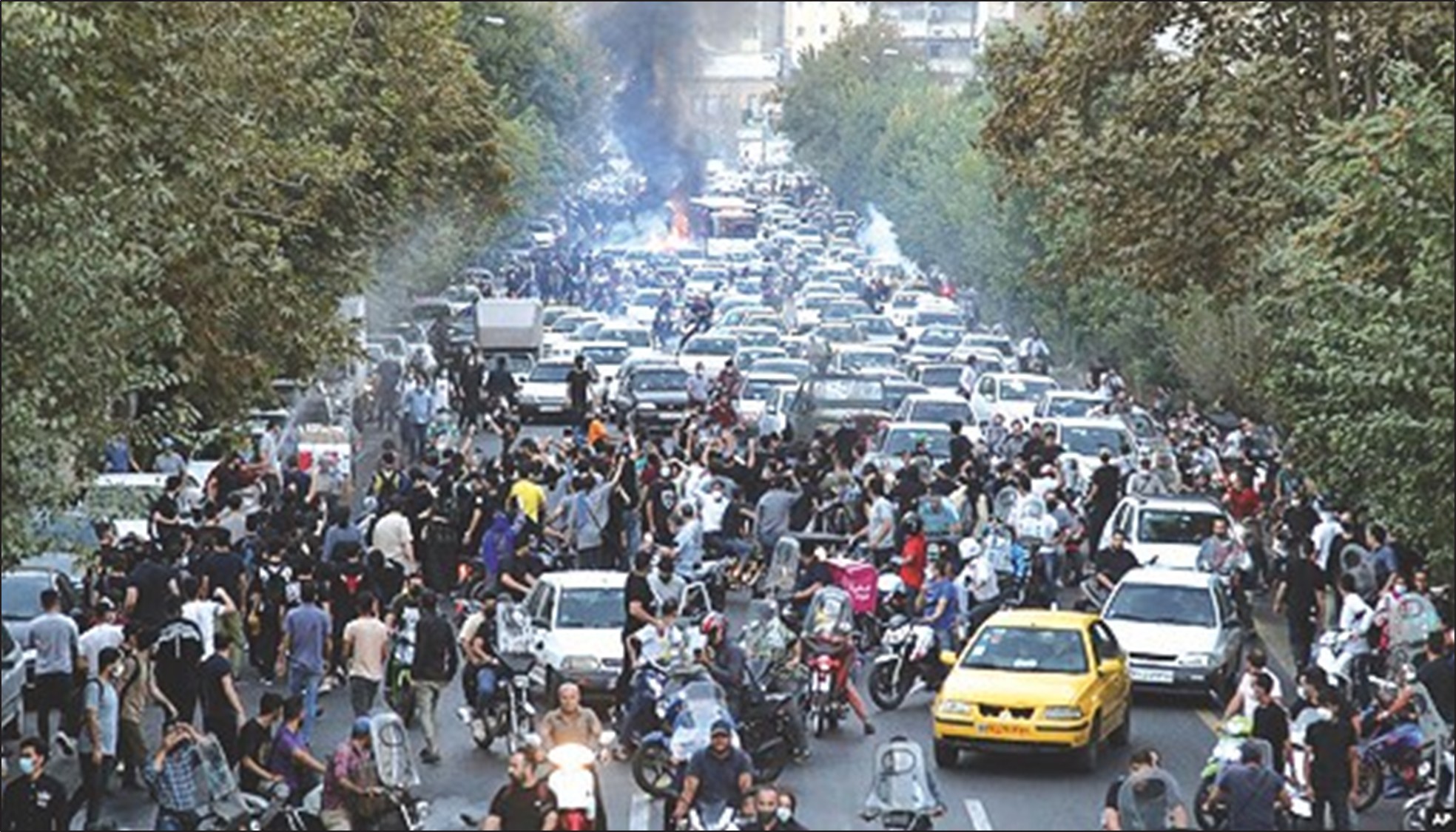December 13-2013
By Emanuele Ottolenghi
It took only 100 days in office for Iran’s new president, Hassan Rouhani, to fool the United States and its Western allies into believing that his charm offensive was a genuine change of direction. As a result, in Geneva three rounds of negotiations (the last of which will happen before this column goes to press) are shaping an interim nuclear agreement that will leave Iran with its ability to build a nuclear bomb intact while giving Tehran the much-coveted sanctions relief the regime needs to keep its economy afloat.
How did such a capitulation happen? After demanding for seven years that Iran halts all its enrichment-related activities, including research and development, the international community is prepared to settle for a deal that will not stop Iran’s enrichment activities and may ultimately recognise Tehran’s demand that enrichment be considered “an inalienable right”.
Iran’s demand has been a key element of its public diplomacy for over a decade. And while many members of the international community have been nervous about Iran’s nuclear ambitions, few outside the small circle of Western democracies are entirely comfortable with foregoing in principle the ability to enrich. After all, many members of the developing world covet nuclear technology for themselves — and why would they endorse a view held only by the US and a few others that the rights under the Nuclear Non-Proliferation Treaty (NPT) do not include a right to enrich?
Although the interim agreement does not address this matter, the US and other powers appear resigned to conceding, in the final stage of a future agreement with Iran, that Tehran has such a right. But is Iran’s demand warranted?
The NPT grants its signatories the right to use nuclear energy for peaceful purposes in exchange for meeting certain obligations, which can be summarised as ensuring the civilian nature of a nuclear programme, adhering to transparency measures and allowing verification by the international community.
Governments and international scholars diverge on the purposely ambiguous text of the NPT’s Article 4. The US maintains that the treaty only guarantees a right to peaceful nuclear energy, not enrichment per se. Others believe that, provided the peaceful nature of the programme is verifiable, enrichment is possible.
However, there is no ambiguity when it comes to Iran’s rights. Any right derived from NPT membership is conditional on compliance with the overall goals of the treaty. The civilian nature of a programme is central to the letter and the spirit of the treaty. Whatever the merits of different interpretations of the treaty, it is clear that no right is “inalienable” because rights granted by the NPT are conditional on compliance with the treaty itself.
Which brings us to Iran. With explicit reference to the NPT’s article 4, on September 24, 2005 the International Atomic Energy Agency’s (IAEA) Board of Governors declared: “Iran’s many failures and breaches of its obligations to comply with its NPT Safeguards Agreement…constitute noncompliance”.
It added: “The history of concealment of Iran’s nuclear activities referred to in the Director General’s report, the nature of these activities, issues brought to light in the course of the Agency’s verification of declarations made by Iran since September 2002 and the resulting absence of confidence that Iran’s nuclear programme is exclusively for peaceful purposes have given rise to questions that are within the competence of the Security Council.”
Consequently, six Chapter VII UN Security Council resolutions have been passed since July 2006 (1696, 1737, 1747, 1803, 1835 and 1929), which order Iran to suspend all enrichment-related activities. There is no ambiguity. Resolution 1696 demands that “Iran shall suspend all enrichment-related and reprocessing activities, including research and development, to be verified by the IAEA.” This step was unanimously and repeatedly endorsed by the international community. That an interim deal with Iran would trample all over it speaks volumes about the resolve of the US to hold its ground vis-à-vis a smiling Iranian regime.
As if this were not enough, there are other reasons, beyond suspension demands by the UN, for the right to enrich to be permanently denied to Iran. It has failed to ratify and implement the Additional Protocol to the Safeguards’ Agreement — additional verification and transparency procedures that would enable the international community to exert a higher level of scrutiny over the country’s nuclear activities. Given Iran’s past violations, only enhanced verification can re-establish trust over time. Iranian demurral strengthens legitimate suspicions about its noncompliance.
Finally, Iran refuses to apply the modified Code 3.1 of the Subsidiary Arrangements to IAEA Safeguards’ Agreements. This norm, which the IAEA considers applicable to Iran, requires all NPT signatories to notify the IAEA of any new nuclear facility before building work begins. Iran has repeatedly violated this rule. All its enrichment activities are thus in violation of the NPT, regardless of whether it has a right, in theory, to enrich uranium.
Iran’s continuing non-compliance and history of obfuscation about the nature and extent of its nuclear activities provide no legal ground for the recognition of a right to enrich as part of any future agreement. It is a pity that President Obama thinks he can trust Iran to keep its enrichment capabilities in the final scheme of things.
Supporters of a deal with Iran tirelessly insist that a military strike would only temporarily offset Iran’s march to nuclear weapons. But a deal that grants Iran the right to enrich achieves the same — its impact will only be to delay a nuclear-armed Iran, not forever prevent its occurrence.
Emanuele Ottolenghi is a Senior Fellow at the Foundation for Defence of Democracies in Washington.






















